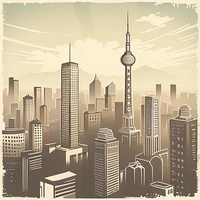
Top Destinations for Photography Enthusiasts in Shanghai, China
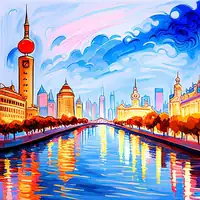
1. The Bund
This iconic waterfront area offers stunning views of the modern skyline and historic colonial architecture, solving the challenge of capturing Shanghai's historical and modern juxtaposition.
- Timing: Best visited during sunrise or sunset for optimal lighting.
- Equipment: A wide-angle lens will capture the grand scale.
- Accessibility: Easily reachable by public transport.
- Perspective: River cruise offers unique angles.
- Atmosphere: Weekdays are less crowded.
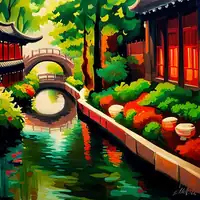
2. Yu Garden
A classical Chinese garden with beautiful rockeries and pavilions, perfect for capturing traditional Chinese landscapes in an urban setting.
- Composition: Look for reflections in the garden's ponds.
- Detail: Focus on intricate carvings and details.
- Timing: Early mornings are the least crowded.
- Season: Each season offers a different garden look.
- Equipment: A zoom lens for close-up shots.
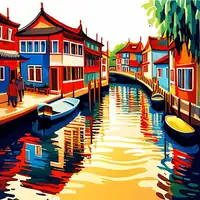
3. Zhujiajiao Water Town
Known as the "Venice of Shanghai," this ancient water town provides a picturesque architectural scene with stone bridges and waterways.
- Lighting: Late afternoon offers soft, warm light.
- Subject: Capture locals and daily life for dynamic shots.
- Travel: Plan a day trip, it's a few hours from central Shanghai.
- Decorum: Respect locals' privacy while photographing.
- Gear: Lightweight gear due to much walking.
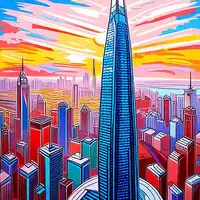
4. Shanghai Tower Observation Deck
This skyscraper offers dramatic panoramic views of the city, solving the challenge of capturing Shanghai from above.
- Time of Day: Night views are spectacular with city lights.
- Clarity: Check weather forecast for clear visibility.
- Reservations: Book tickets in advance.
- Safety: Follow all guidelines for the observation deck.
- Gear: Tripods might not be allowed; check rules.
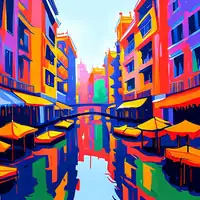
5. Tianzifang
A unique arts and crafts enclave with narrow alleys, perfect for vibrant street photography.
- Detail: Capture the unique shop facades and artwork.
- Time of Day: Visit on weekdays to avoid crowds.
- Diversity: Blend of old architecture and modern art.
- Atmosphere: Be respectful, it's a functional living area.
- Equipment: Lightweight camera for narrow alleyways.
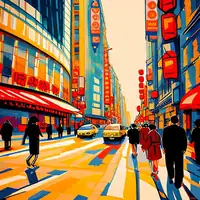
6. Nanjing Road
Shanghai’s famous shopping street, ideal for capturing the hustle and bustle of city life and modern urban culture.
- Energy: Night provides a vibrant, neon-lit atmosphere.
- Perspective: Shoot from upper levels for crowd scenes.
- Composition: Look for symmetry in modern architecture.
- Timing: Early mornings are quieter for different shots.
- Safety: Be mindful of pickpockets in crowded spaces.
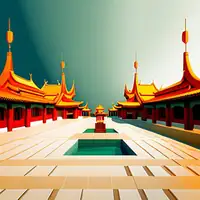
7. The Jade Buddha Temple
This active temple is known for its exquisite jade sculptures, offering a serene setting for capturing religious architecture and cultural practices.
- Respect: Photography may be restricted in certain areas.
- Timing: Early mornings are most peaceful.
- Lens: Wide-angle lens for temple interiors.
- Environment: Be mindful of worship activities.
- Consideration: Modest dress is advised.
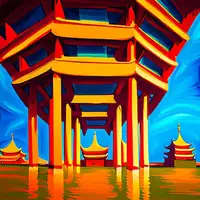
8. Longhua Temple
Known to be one of the oldest temples in Shanghai, with its iconic pagoda, perfect for historical and devotional photography.
- History: Capture the contrast between old and new.
- Composition: Look for leading lines in temple design.
- Season: Springs offer cherry blossoms for softer scenes.
- Photography: Tripods may be allowed for stability.
- Clarification: Obtain necessary permits where required.
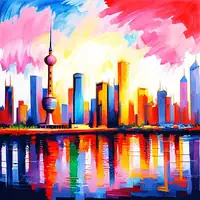
9. Lujiazui Skyline
Capture the modern heart of Shanghai, with its impressive skyscrapers including the Oriental Pearl Tower.
- Perspective: Shot from the ground reveals towering heights.
- Focus: Look for reflection shots across the river.
- Clarity: Visit during clear weather for skyline visibility.
- Activity: Consider night photography for lighting effects.
- Timing: Golden hours provide the best lighting.
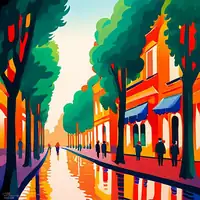
10. French Concession
This area is known for its tree-lined avenues and colonial-era buildings, providing a European touch to your photographs.
- Light: Early mornings provide soft shadows.
- Architecture: Focus on blending history with modern life.
- Subject: Street photography opportunities are plentiful.
- Season: Autumn leaves add color contrast.
- Gear: Compact camera for ease of movement.
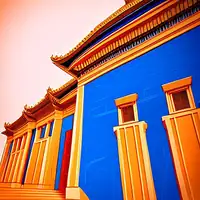
11. Shanghai Museum
Ideal for indoor photography of historical artifacts, helping to capture Chinese history and culture.
- Lighting: Interior lighting can vary; adjust settings.
- Permission: Check regulations for indoor photography.
- Detail: Focus on craftsmanship of exhibits.
- Composition: Use gallery architecture as leading lines.
- Respect: Flash photography might be prohibited.
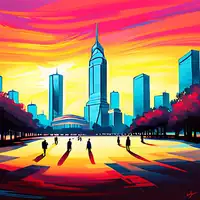
12. People's Square
Known for its expansive grounds and modern surroundings, offering a blend of urban park and cityscape photography.
- Perspective: Capture park life with city backdrop.
- Action: Focus on dynamic scenes of locals and events.
- Lens: Versatile lens covers both wide and zoom shots.
- Environment: Watch weather for outdoor photography.
- Timing: Offers best light in the afternoons.
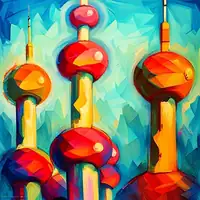
13. Oriental Pearl TV Tower
Capture this iconic architectural landmark, offering both futuristic design photography and aerial city views.
- Composition: Build shots around geometric shapes.
- Timing: Night lighting offers dynamic compositions.
- Detail: Capture the tower's reflection in nearby water.
- Logistics: Check for time slots for deck entrance.
- Clarity: Look for clean day conditions for clarity.
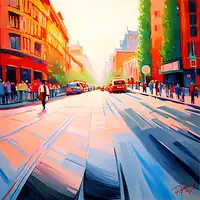
14. Duolun Road
Known for its cultural and literary past, this street provides unique retro settings perfect for nostalgic photography.
- Framing: Capture old bookstores and quaint cafes.
- Time Travel: Early evening offers mysterious vibes.
- Lens: Prime lenses work for dim lighting conditions.
- History: Research to add depth to images.
- Preservation: Respect preservation efforts of historic sites.
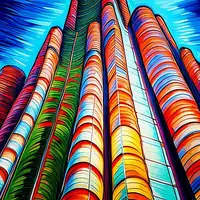
15. Jinmao Tower
Known for its striking design, offering panoramic views from the skywalk at its top.
- Height: Use a wide lens to captivate the height.
- View: Focus on sprawling cityscapes.
- Clouds: Cloud cover adds a dramatic effect.
- Focus: Include the unique hotel atrium inside shots.
- Reservation: Book viewing tickets ahead.
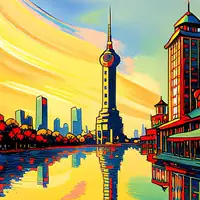
16. 1933 Shanghai
A former slaughterhouse turned into a creative hub, offering industrial-chic photography with unique architectural angles.
- Geometry: Architectural elements provide dramatic lines.
- Lighting: Play with shadows from natural light.
- Access: Public access to most areas.
- Diversity: Mix of outdoor and indoor spaces.
- Texture: Focus on the raw, untouched concrete textures.
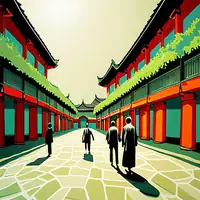
17. Shikumen Open House Museum
A preserved historical building showcasing the traditional residential style of Shanghai, helping document the city’s heritage.
- Detail: Capture the unique blend of eastern and western elements.
- Gear: Use a wide lens for cramped interiors.
- Timing: Midday offers brighter lighting indoors.
- Respect: It's a cultural preservation site; act accordingly.
- Storytelling: Allow displays to guide narrative shots.
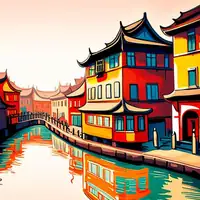
18. Qibao Ancient Town
Known for its authentic architectural styles and heritage, providing myriad photographic opportunities of old China.
- Culture: Capture locals engaging in daily traditions.
- Composition: Frame natural settings across waterways.
- Sounds: Avoid bustling sound by visiting early.
- Tripod: Consider for low light evening shots.
- Cuisine: Include street food settings for local flavor.
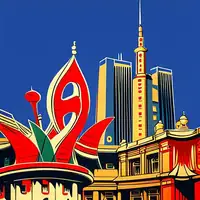
19. Shanghai Propaganda Poster Art Centre
A unique museum hosting revolutionary art, solving the challenge of capturing political and artistic history together.
- Detail: Focus on vibrant colors and dramatic scenes.
- Permission: Ensure camera use is allowed.
- Research: Knowledge of history enriches narrative shots.
- Lens: Consider a prime lens for detailed shots.
- Space: A small venue can be crowded quickly.
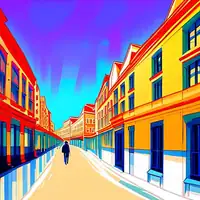
20. Moganshan Road Art District (M50)
Renowned for contemporary art galleries and vibrant murals, perfect for modern and urban photography.
- Expression: Focus on bold street art murals.
- Styles: Capture diverse contemporary art styles.
- Texture: Pay attention to different materials used.
- Access: Open access to public murals.
- Lighting: Natural daylight better captures mural vibrancy.